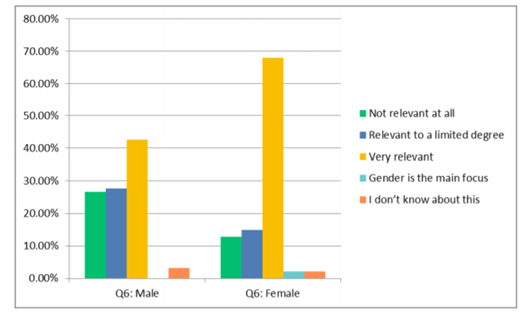Author: Bibby, Claire1
Published in National Security Journal, 05 April 2021
When staff were asked about how relevant gender is in their current workplace, its relevance reduced further, revealing a gap between the theory and the reality in the workplace. For example, 27 males (32.98%) said gender is very relevant compared to 10 females (45.65%). However, conversely, 61 males (64.89%) compared to 24 females (52.17%) responded that gender is relevant to a limited degree or not relevant at all in the workplace.
These questions were looked at again, in relation to whether the respondent was a constable or not. The results showed that constables are less likely to believe gender is relevant in the workplace compared to non-constabulary staff. Thirty-two constables (34.78%) thought gender is very relevant, 26 constables (28.26%) thought gender is relevant to a limited degree and 32 constables (34.78%) not relevant at all. This compared to 19 (39.58%) of non-constabulary staff who thought gender is very relevant, 11 (22.45%) relevant to a limited degree and 16 (33.33%) not relevant at all. The data provides a benchmark for improving police understanding of the relevance of gender to policing.

Figure 2: Male and female perceptions of the relevance of gender to principles of policing
